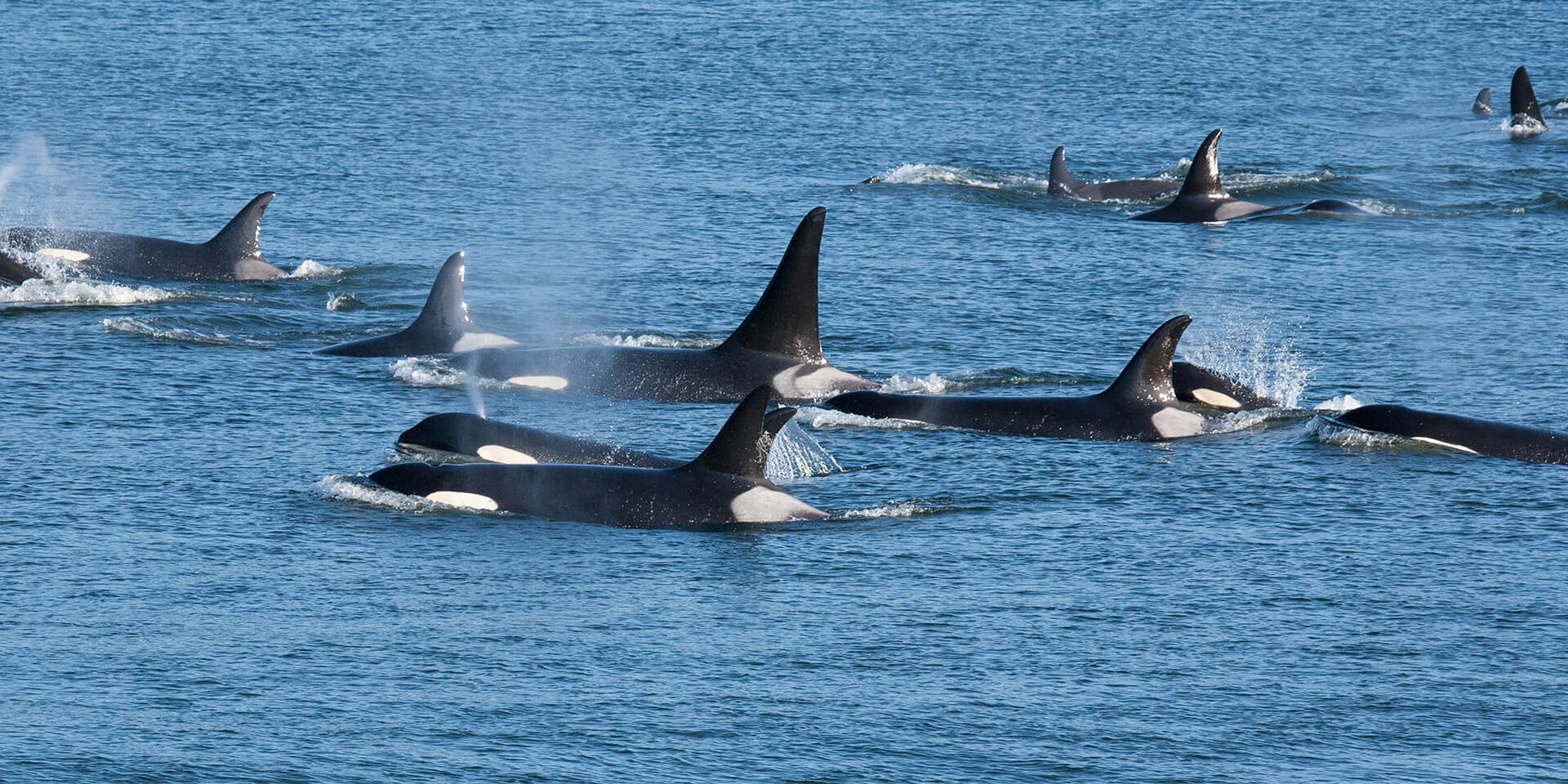2014 Annual Meeting
May 5-8, 2014: Washington, D.C.
Introduction
- Brief overview of the first 40 years of the Commission, highlighting activities as well as shortfalls (Bob Hofman)
- Looking forward: How can the Commission ensure continued effectiveness in the next few decades, in the face of new challenges? (Doug DeMaster)
Agency Leadership Roundtable
- Department of the Navy perspectives on the Marine Mammal Protection Act (Don Schregardus)
- U.S. Coast Guard Living Marine Resources (Steven Tucker)
Theme 1: Understanding and Managing the Impacts of Climate Change and Increased Human Activities
- Marine mammals and climate change with brief readout of IWC Arctic meeting (Sue Moore)
- Current outlook for oil and gas development and environmental studies in the U.S. Arctic (Jim Kendall)
- Arctic Marine Mammal Coalition efforts on Arctic shipping (Vera Metcalf)
Marine Mammal Science and Conservation: An Economist’s Perspective
- Economics for marine mammal protection (Robert Hicks)
Theme 2: Offshore Energy Development
- Offshore energy development (Bill Brown)
- Questioning the Quest (Sharon Young)
- Industry sponsored programs and collaborations (Michael Macrander)
- Partnerships to better understand and address the impacts of offshore energy development on marine mammals and ecosystems (Jolie Harrison)
- Sound and Marine Life Joint Industry Program and other projects (Gary Isaksen)
- International ocean renewable energy environmental information sharing partnerships (Jocelyn Brown-Saracino)
Theme 3: Marine Mammal Strandings – Maximizing Their Value for Understanding Ocean Health, Wildlife Health, and Connections to Human Health
- Overview of the stranding network, data obtained from strandings, and plans to integrate stranding data with the Integrated Ocean Observing System (Stephanie Venn-Watson)
- Integration of marine mammal health data into the Wildlife Health Information Sharing Partnership-event reporting system (Paul Slota)
- Oceans and human health: Through a marine mammal lens (Paul Sandifer)
Theme 4: Marine Mammal Bycatch in U.S. and Global Fisheries
- Overview of major bycatch problems in global fisheries, including U.S. fisheries (Andy Read)
- Role of the United States as a major seafood market in ensuring that U.S. imports do not become a driver for marine mammal bycatch problems (Nina Young)
- Progress at the multinational level in addressing marine mammal bycatch assessment and developing management measures (Liz English)
- Bottom-up solutions from the seafood industry: Examples of industry- and market-driven efforts to monitor and reduce bycatch, including ISSF’s role in testing alternative observing systems (Susan Jackson)
Theme 5: Issues Associated with Increasing Marine Mammal Stocks
- What is Optimum Sustainable Population (OSP)? How is it determined and what measure of carrying capacity should be used? (Mike Runge)
- Management options for populations at OSP and consideration of other statutory provisions, including non-lethal deterrence of marine mammals, whether or not at OSP (Don Baur)
- Status and management issues regarding gray seals in New England, including potential conflicts and research needed to resolve uncertainties (Gordon Waring)
Capitol Hill: Priorities for Marine Mammal Science and Conservation
- Brief overview of the Commission’s Strategic Plan, the Commission’s Priorities Report for NMFS, and outcomes from the Annual Meeting discussions (Daryl Boness)
- Marine Mammal Science and Management Priorities (Lisa Ballance)
Capitol Hill: New Developments in Marine Mammal Research and Conservation
- Partnerships for advanced research (Jason Gedamke)
- Using technology to build knowledge for management and science: Acoustics and telemetry (Christopher Clark)
- Exploring the frontiers of knowledge of marine mammals (Michael Weise)
